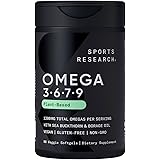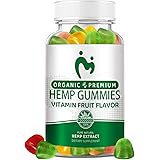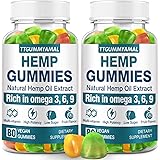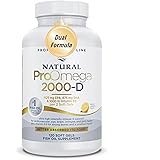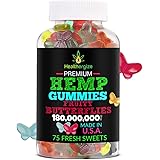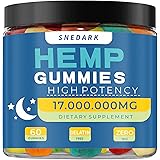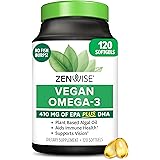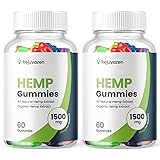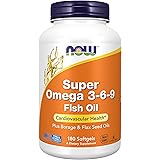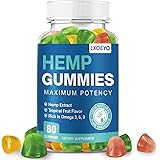Understanding Hemp Seed Oil: A Natural Powerhouse
Hemp seed oil is recognized as a versatile natural product, offering a multitude of benefits for both dietary and cosmetic applications. As was highlighted in the accompanying video, this unique oil is derived from raw hemp seeds and possesses a chemical composition distinctly different from CBD oil, meaning it has no mind-altering properties.
Its widespread use stems from an impressive nutritional profile and the sustainable nature of the hemp plant itself. The plant is known for a very short harvest cycle and is utilized in the production of over 25,000 diverse products, demonstrating its incredible versatility.
The Sustainable Story of Hemp Cultivation
Cultivating hemp is surprisingly straightforward and environmentally friendly, often simpler than growing other common crops like soybeans, cotton, or corn. This resilience is attributed to its minimal water requirements, allowing it to thrive even in low-quality soil conditions.
The ease of growth and adaptability make hemp a valuable crop for sustainable agriculture. Its rapid growth cycle further enhances its appeal as a renewable resource, contributing positively to ecological balance.
Hemp Seed Oil vs. CBD Oil: Clearing the Confusion
A common misconception is that hemp seed oil and CBD oil are interchangeable; however, their compositions and primary uses differ significantly. Hemp seed oil is extracted from the seeds, while CBD oil is typically derived from the leaves, flowers, and stalks of the hemp plant, where cannabinoid compounds are concentrated.
Hemp seed oil has a long history as a dietary supplement and beauty aid, well-documented for its nourishing properties. CBD oil, on the other hand, is often utilized as a supplement or medicine for specific health conditions, containing cannabidiol (CBD) which interacts with the body’s endocannabinoid system.
Nutritional Power: The Omega Balance
One of the most impressive aspects of hemp seed oil is its optimal fatty acid profile. Hemp seeds are known to contain an ideal 3:1 ratio of omega-6 to omega-3 essential fatty acids.
This balance is crucial for human health, as these fatty acids play vital roles in cellular function, inflammation regulation, and overall well-being. The Gamma-Linolenic Acid (GLA) found in hemp seed oil, a specific type of omega-6, is particularly noted for its anti-inflammatory effects.
Exploring Varieties of Hemp Seed Oil
Hemp seed oil is generally available in two primary forms, each with distinct characteristics and applications. These varieties are distinguished by their processing methods and, at times, their origin.
Refined Hemp Seed Oil
Refined hemp seed oil often originates from places like the Netherlands. It typically has a mildly nutty smell, similar to its unrefined counterpart, but can be lighter in color and have a more neutral flavor due to processing.
Its main constituents include Y-Linolenic (GLA) and Stearadonic acid. This variety is frequently used in Ayurvedic practices and various cosmetic formulations due to its stability and less pronounced aroma, making it easy to incorporate into products.
Unrefined Hemp Seed Oil
Unrefined hemp seed oil, often sourced from Canada, retains more of its natural characteristics. It also possesses a mildly nutty smell and a richer, greener hue compared to the refined version.
Like the refined oil, its key components are Y-Linolenic (GLA) and Stearidonic Acid, which contribute to its beneficial properties. Unrefined hemp seed oil is particularly valued in cosmetics where its full spectrum of nutrients is desired.
Key Benefits of Incorporating Hemp Seed Oil
The uses of hemp seed oil are extensive, touching upon various aspects of health and beauty. Its rich composition of fatty acids, vitamins, and antioxidants contributes to a wide range of documented benefits.
- **Improves Blood Circulation:** The omega fatty acids in hemp seed oil are known to support cardiovascular health. Improved circulation helps in efficient nutrient delivery and waste removal throughout the body.
- **Improves the Thickness of Hair:** When applied topically or consumed, the oil’s nourishing components can help strengthen hair strands. This contributes to better hair thickness and overall scalp health, potentially reducing breakage and promoting growth.
- **Used in Soaps:** Its emollient properties make hemp seed oil an excellent ingredient for soaps and other cleansing products. It provides moisturizing benefits, helping to prevent skin from drying out after washing.
- **Eases PMS Pain:** The Gamma-Linolenic Acid (GLA) content in hemp seed oil is thought to help balance hormones and reduce inflammation. This can lead to a reduction in symptoms associated with premenstrual syndrome, such as cramps and breast tenderness.
- **Treats Cracked & Dry Skin:** The oil is deeply hydrating and helps to restore the skin’s barrier function. Regular application can soothe and repair dry, cracked skin, leaving it soft and supple.
- **Balances Hormones:** The essential fatty acids, particularly GLA, are precursors to prostaglandins, hormone-like substances vital for many bodily functions, including hormone regulation. This balance can contribute to improved mood and overall physiological stability.
- **Promotes Heart Health:** With its ideal omega-3 and omega-6 ratio, hemp seed oil supports healthy cholesterol levels and reduces inflammation. These factors are crucial for maintaining a healthy cardiovascular system and reducing the risk of heart disease.
- **Assists in Weight Loss:** While not a magic solution, the healthy fats in hemp seed oil can help promote satiety and regulate metabolism. When included as part of a balanced diet, it may support weight management efforts.
Practical Applications: How to Use Hemp Seed Oil
Integrating hemp seed oil into your daily routine is simple, whether for beauty or dietary purposes. Its gentle nature makes it suitable for various skin types, but a patch test is always recommended.
For Removing Makeup
Hemp seed oil can serve as an effective and gentle makeup remover. A small amount of hemp oil applied to fingertips and massaged gently in circles can dissolve makeup and impurities. This method helps to cleanse the skin without stripping its natural oils.
For Exfoliating
To create a natural exfoliant, two tablespoons of hemp oil can be mixed with two tablespoons of brown sugar to form a paste. This mixture can be gently scrubbed onto the skin while in the shower, helping to remove dead skin cells and dirt for smoother skin.
For Skincare
A few drops of hemp seed oil may be added to your regular facial cleanser or moisturizer. This boosts the moisturizing and nourishing properties, helping to remove dead skin cells and enhance skin health and hydration.
Important Considerations for Use
While hemp seed oil is generally considered safe and beneficial, it is always wise to exercise caution. Before making significant changes to your diet or skincare regimen, especially if you have underlying health conditions or are taking medications, it is recommended that a doctor be consulted.
This ensures that hemp seed oil is appropriate for your individual needs and will not interact negatively with any existing treatments. Always prioritize professional medical advice when introducing new supplements.
Understanding Carrier Oils and Their Role
Carrier oils are vegetable oils derived from the fatty portion of a plant, typically from the seeds, nuts, or kernels. They are used to dilute essential oils before topical application, but many also possess their own therapeutic properties and can be used independently or in conjunction with hemp seed oil for enhanced benefits.
Almond Oil
Main chemical components include oleic acid, linoleic acid, and palmitic acid, extracted via cold pressing from seeds. This oil improves immune function, aids digestion, enhances complexion, and retains skin glow. It is often used aromatically in a diffuser or topically mixed with moisturizer.
Apricot Oil
Rich in oleic and linoleic acids, apricot oil is cold pressed from seeds. It is amazing for a healthy scalp and shiny hair, and also helps to lower high blood pressure. Uses are similar to almond oil, through aromatic diffusion or topical application with moisturizer.
Avocado Oil
This oil contains palmitoleic, oleic, palmitic, linoleic, and stearic acids, extracted from ripe avocado flesh. It is known to reduce lines and wrinkles, and re-hydrate and nourish damaged, sun-dried skin. It can be used aromatically or topically with moisturizer.
Jojoba Oil
With main chemical components like erucic acid and oleic acid, extracted from seeds, jojoba oil treats various skin conditions such as eczema, molluscum, rashes, pimples, warts, and acne. It is suitable for aromatic use in a diffuser or topical application.
Moringa Oil
Containing oleic acid, palmitic acid, behenic acid, and stearic acid, moringa oil is cold pressed from seeds. It serves as an excellent carrier for aromatic compounds, provides nutrition to the skin, and helps relieve signs of aging. It can be used aromatically or topically for DIY mixtures.
Coconut Oil
The main chemical components include terpinen, cineole, anol, and pinene, extracted from seeds. Coconut oil helps to treat eczema and psoriasis, and effectively fights premature signs of aging. It is frequently used aromatically or topically for various DIY applications.
Hemp seed oil stands out as a remarkable natural product due to its ecological sustainability and extensive health and beauty applications. Its distinct profile, especially its ideal omega fatty acid ratio, makes it a valuable addition to natural wellness routines.


